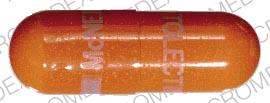Tolectin DS Interactions
There are 383 drugs known to interact with Tolectin DS (tolmetin), along with 10 disease interactions, and 2 alcohol/food interactions. Of the total drug interactions, 99 are major, 276 are moderate, and 8 are minor.
- View all 383 medications that may interact with Tolectin DS
- View Tolectin DS alcohol/food interactions (2)
- View Tolectin DS disease interactions (10)
Most frequently checked interactions
View interaction reports for Tolectin DS (tolmetin) and the medicines listed below.
- 5-HTP (5-hydroxytryptophan)
- Aleve (naproxen)
- aloe vera
- Alpha-Lipoic-Acid-300 (alpha-lipoic acid)
- astragalus
- Barlean's Highest Lignan Flax Oil (flax)
- betaine
- bitter melon
- black walnut
- borage
- Bromaline (brompheniramine / pseudoephedrine)
- calcium citrate
- Calcium Concentrate (calcium carbonate)
- capsicum
- cat's claw
- chamomile
- chlorophyllin
- chondroitin / glucosamine
- Chromium GTF (chromium picolinate)
- cilostazol
- Citracal + D (calcium / vitamin d)
- Cod Liver Oil (multivitamin)
- Collagenase Santyl (collagenase topical)
- copper gluconate
- CoQ10 (ubiquinone)
- cordyceps
- creatine
- devil's claw
- DHEA (dehydroepiandrosterone)
- Dimetapp DM (brompheniramine / dextromethorphan / pseudoephedrine)
Tolectin DS alcohol/food interactions
There are 2 alcohol/food interactions with Tolectin DS (tolmetin).
Tolectin DS disease interactions
There are 10 disease interactions with Tolectin DS (tolmetin) which include:
- asthma
- fluid retention
- GI toxicity
- rash
- renal toxicities
- thrombosis
- anemia
- hepatotoxicity
- hyperkalemia
- platelet aggregation inhibition
More about Tolectin DS (tolmetin)
- Tolectin DS consumer information
- Compare alternatives
- Reviews (1)
- Drug images
- Latest FDA alerts (4)
- Side effects
- Dosage information
- During pregnancy
- Drug class: Nonsteroidal anti-inflammatory drugs
- Breastfeeding
Related treatment guides
Drug Interaction Classification
| Highly clinically significant. Avoid combinations; the risk of the interaction outweighs the benefit. | |
| Moderately clinically significant. Usually avoid combinations; use it only under special circumstances. | |
| Minimally clinically significant. Minimize risk; assess risk and consider an alternative drug, take steps to circumvent the interaction risk and/or institute a monitoring plan. | |
| No interaction information available. |
See also:
Further information
Always consult your healthcare provider to ensure the information displayed on this page applies to your personal circumstances.


